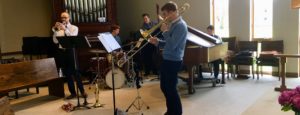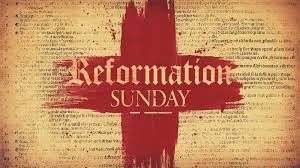WEAR RED to celebrate REFORMATION SUNDAY on October 27. Reformation Sunday commemorates the Reformation movement started by Martin Luther in the 16th century. Luther (1483 – 1546) was a German priest, Dominican monk, and professor of theology.
 We also will have our second fall JAZZ WORSHIP service led by Jon Ailabouni, adjunct professor of music, director of Luther College’s Jazz Band, and four Luther student musicians.
We also will have our second fall JAZZ WORSHIP service led by Jon Ailabouni, adjunct professor of music, director of Luther College’s Jazz Band, and four Luther student musicians.
Finally, we will celebrate FOOD PANTRY SUNDAY –  Items needed for October by the Decorah Community Food Pantry are cooking oil (quart size) and men’s and women’s deodorant. Monetary donations are also welcome – make checks payable to the Decorah Community Food Pantry.
Items needed for October by the Decorah Community Food Pantry are cooking oil (quart size) and men’s and women’s deodorant. Monetary donations are also welcome – make checks payable to the Decorah Community Food Pantry.





